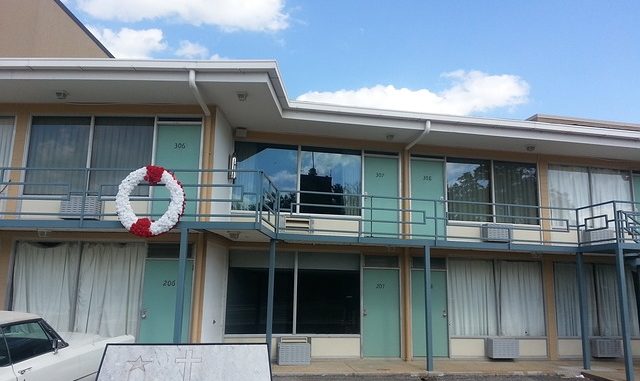
Memphis is the tale of two sons. Both equally important, but not equally loved. The consequences of such a relationship has birthed a proud city with a broken spirit.
I recently visited Memphis with several good friends of mine. My friends and I made a promise to continue to meet up after we got married to continue to our friendship and maintain its original roots, while at the same time growing into our new roles of life together.
What I am about to write about Memphis isn’t something that can be seen tangibly, but after reading this piece I hope it piques your curiosity as to what is going on in a southern city that means more to this nation’s history than most people realize.
Memphis is the tale of two sons. The first son Elvis Presley wasn’t born in Memphis, but his life and legacy remain at the core of Memphis as a source of pride and honor for the city.
The second son Dr. Martin Luther King Jr wasn’t born in Memphis either but just like Elvis Presley his life and legacy remain at the city’s core.
Both Elvis and Dr. King both died tragically in Memphis but for completely different reasons.
But how do the deaths of two unrelated men nearly a decade apart define a city 40 years later?
I had a chance to visit Graceland while in Memphis and after visiting I learned an incredible amount about Elvis Presley’s life, family, and career.
His meteoric rise to fame and the way he redefined pop culture still lives on in today’s society. Even today, Elvis Presley is still recognized as the best-selling solo music artist of all time.
Additionally, I had a chance to visit the Lorraine Motel and Civil Rights museum and I was able to see where Dr. King spent the last days of his life. I also began to understand the significance of his visit to Memphis as well as key moments in the history of the ongoing struggle for Civil Rights.
When Dr. King visited Memphis in 1968 sanitation workers were on strike after being treated unfairly in terms of their pay, work conditions, and union protections.
While that strike ended on April 16th, 1968 (12 days after Dr. King’s assassination in Memphis) it feels like the working conditions haven’t really improved much in the present day.
Throughout our travels in Memphis we spent quite a bit of time interacting with the locals and we kept hearing a common theme.
Upward mobility is limited and there is no visible path to achieve success.
In a city whose most historic hotel and famous landmark, The Peabody, prides itself in a daily march of its ducks that has been taking place since 1940, it seems a bit ironic that the city’s economic opportunities for growth are quite possibly stagnated in the same time warp.
The continued rise of the information age has certainly weakened the ability for Memphis to expand economically with Fortune 500 companies like Federal Express, Autozone, and International Paper producing the city’s only major exports in a depressed economy.
Once described as the greatest cultural force in the 20th century by composer Leonard Bernstein, Elvis Presley projects the image the city of Memphis wants for itself.
Who doesn’t want to have a successful career and become a pillar of their community and inspire the future generations to achieve greatness?
No one wants to die ignominiously on a balcony fighting for people’s voices to be heard only to find out the system was never designed to listen. Unknowingly and ironically providing a feed back loop that reinforces the echoes of despair to all who shout.
The empire that Elvis built sits on over 14 acres of land and is a national treasure. The revolution for civil rights that Dr. King was such an integral part of lies dashed on displaced block of concrete on the balcony of the Lorraine Motel.
The cruel irony is that capitalism is built on the displaced blocks of concrete into the great mansions we hold in such high regard.
Instead of viewing each individual block as unique pieces, we look at them as footstools to reach a manufactured dream that, akin to the fate of greek mythological figure Tantalus, lies just beyond our grasp.
Without realizing the value of each individual we all end up broken, striving for something that would never fulfill us if we achieved it anyway.
Maybe the problem of Memphis, and quite possibly a microcosm of America, is that we don’t value people individually; just those who are elevated to positions that are impossible to attain.
God Bless Memphis. God Bless America.

Leave a Reply